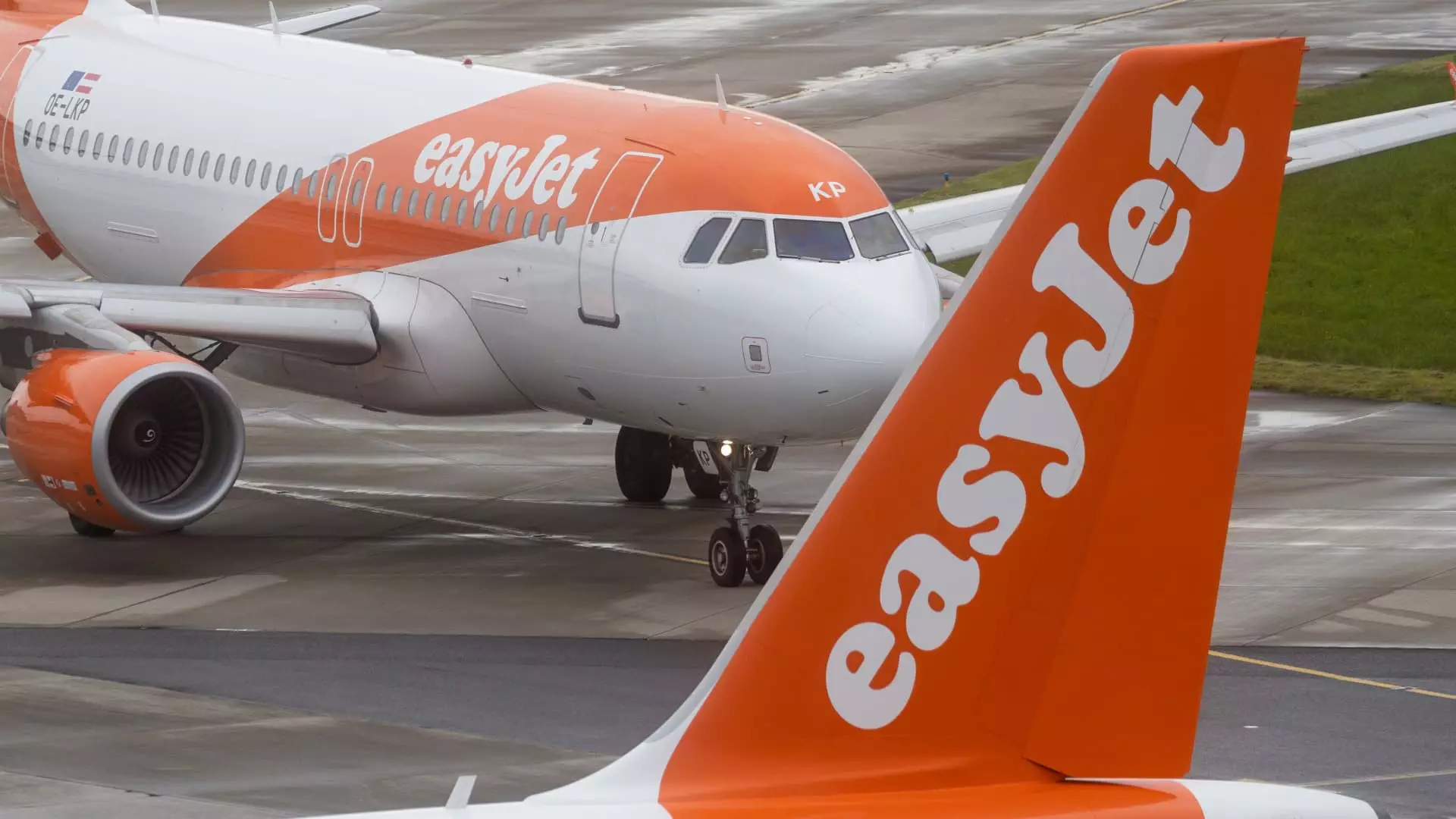EasyJet, the low-cost airline, saw its shares drop by over 7% following the announcement of a pre-tax loss of £350 million for the first half of the fiscal year. This figure, although an improvement from the previous year’s loss of £411 million, exceeded the analysts’ expectations of £340 million. The financial report indicates the struggle of the airline during the Covid-19 era travel slump, despite signs of recovery.
The departure of CEO Johan Lundgren, who has been at the helm of EasyJet for seven years, added to the negative sentiment surrounding the company. Lundgren will step down in January 2025, to be replaced by the current chief financial officer Kenton Jarvis. This leadership transition comes at a critical time for EasyJet, as the airline tries to navigate through the challenges in the aviation industry.
The market reacted swiftly to the news, with EasyJet shares dropping 5.9% shortly after the announcement. Investors and analysts are closely monitoring the company’s performance, especially during a time when the travel industry is facing supply constraints and uncertainties due to the ongoing pandemic. The departure of a long-standing CEO could add to the concerns of shareholders regarding the future direction of the company.
Despite the current setbacks, Lundgren expressed optimism about the upcoming summer travel season, noting a positive momentum in consumer spending on travel. He highlighted popular European destinations like Spain, Portugal, and Turkey, where travelers are prioritizing holidays. The CEO reassured that EasyJet’s flight schedules would remain unaffected, as the airline continues to receive expected aircraft deliveries from Airbus.
Industry Challenges
However, the broader challenges in the aviation sector, including rising fuel costs and potential disruptions in the global supply chain, could pose significant hurdles for EasyJet and its competitors. The company will need to adapt to the changing market dynamics and ensure that it remains competitive in a post-pandemic world where travel demand is gradually recovering.
The recent decline in EasyJet’s shares, coupled with the announcement of a higher-than-expected loss and CEO departure, highlights the challenges faced by the airline industry in the current economic climate. As EasyJet navigates through these turbulent times, it will be crucial for the company to implement strategic measures to regain investor confidence and sustain its position in the competitive aviation market.

